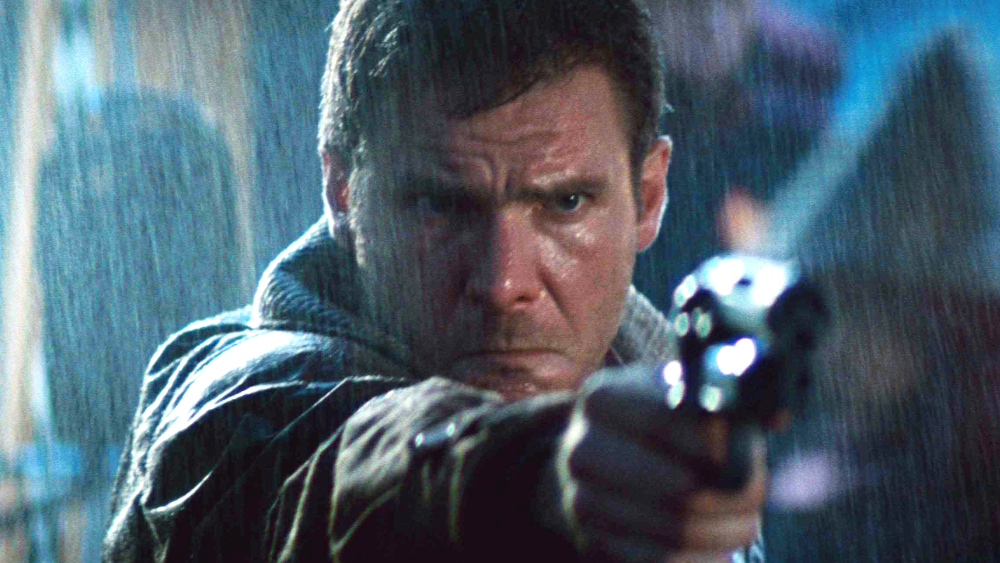Ridley Scott’s Journey: From Doubts to Cinematic Mastery in “Blade Runner”
In a recent retrospective interview with GQ magazine, acclaimed director Ridley Scott revisited the early challenges and triumphs that led to the creation of the iconic film “Blade Runner.” During the conversation, he reflected upon the role of actor Harrison Ford in the project and how initial skepticism from financiers questioned Ford’s star power at a time when he was most known for his role as Han Solo in “Star Wars.”
Financiers’ Hesitation
Scott recounted an interesting exchange with the film’s financiers, who were doubtful about casting Ford in the lead role. At that point in Ford’s career, he was not yet recognized as a leading man in Hollywood, something Scott firmly believed would change. “Harrison Ford was not a star. He had just finished flying the Millennium Falcon in ‘Star Wars,’” Scott stated. He went on to remember his partners in finance exclaiming, “Who the fuck is Harrison Ford?” to which he confidently replied, “You’re going to find out.” This pivotal decision marked Ford’s transition from the sidelines to becoming the face of a film that would later be regarded as a masterpiece.
Endorsement by Spielberg
Ford’s involvement in Scott’s vision for “Blade Runner” was further solidified when he received the endorsement of renowned director Steven Spielberg. At the time, Spielberg was in the post-production phase of “Raiders of the Lost Ark,” and upon Scott’s inquiry about casting Ford, he offered his enthusiastic support. Ford, intrigued by the idea of portraying a more complex character compared to his adventurous roles in “Star Wars” and “Indiana Jones,” was eager to accept the challenge presented by Scott’s vision, thereby laying the groundwork for his transformative work in the film.
Creating a New World
Scott was motivated by a desire to construct a unique and futuristic universe for “Blade Runner,” distinct from any other cinematic experience at the time. He spent five months collaborating with a talented writer, Hampton Fancher, who had adapted Philip K. Dick’s novel “Do Androids Dream of Electric Sheep?” During the development process, Scott recognized the depth of material within the first twenty pages of the book and perceived its complexity. However, Fancher effectively sculpted a compelling story that resonated with Scott, who desired to explore a broader narrative that extended beyond the confines of a singular apartment setting.
Critics’ Response Over Time
Upon the film’s release, “Blade Runner” did not initially receive the acclaim that Scott had envisioned. Early reviews, including a notably harsh critique by respected film critic Pauline Kael in The New Yorker, led to disappointment for Scott. She described the film as lacking substance and suggested that perhaps Scott and his team should be “hiding” if someone were to develop a method for detecting the film’s humanoid characters. Scott’s disappointment shines through his words: “Dude, four pages of destruction. She destroyed me. I never even met her! … It’s insolent,” with the director recognizing the impact of her review at the industry level.
Legacy of “Blade Runner”
Despite its inauspicious beginnings, “Blade Runner” has since gained significant acclaim and is now considered a pivotal work in the science fiction genre. The film’s thought-provoking narrative, coupled with its groundbreaking visual style, continues to resonate with audiences and filmmakers alike. Scott’s vision, combined with Ford’s stellar performance, contributed to the film’s eventual status as a cult classic that challenges societal norms and explores complex philosophical questions.
Conclusion
Ridley Scott’s journey in creating “Blade Runner” provides valuable insights into the often tumultuous path of filmmaking. His initial struggles with financier skepticism and harsh criticism highlight the unpredictable nature of the industry and the risks involved in ambitious artistic endeavors. Ultimately, with perseverance and a steadfast belief in his vision, Scott paved the way for “Blade Runner” to evolve into a masterpiece that continues to impact film and culture nearly four decades later.
FAQs
1. Why were financiers skeptical about Harrison Ford’s casting in “Blade Runner”?
Financiers were skeptical because, at the time, Harrison Ford was primarily known for his role as Han Solo in “Star Wars” and had not yet established himself as a leading man in Hollywood.
2. What was the significance of Spielberg’s endorsement of Ford?
Spielberg’s endorsement gave Scott additional confidence in his decision to cast Ford, especially as Ford was already securing recognition for his role in “Raiders of the Lost Ark.”
3. How did “Blade Runner” initially perform critically and commercially?
Upon its release, “Blade Runner” did not perform well both critically and at the box office. It received mixed reviews, with some critics praising its visuals but others panning its narrative.
4. What themes are explored in “Blade Runner”?
The film delves into complex themes such as humanity, identity, and the moral implications of artificial intelligence.
5. How has the perception of “Blade Runner” changed over the years?
Over time, “Blade Runner” has gained a cult following and is now celebrated as a groundbreaking work in the science fiction genre, influencing countless films and discussions about future technologies and ethics.

